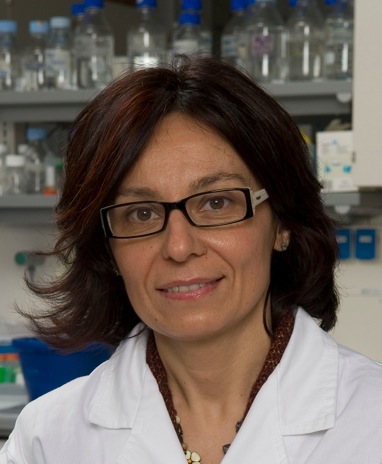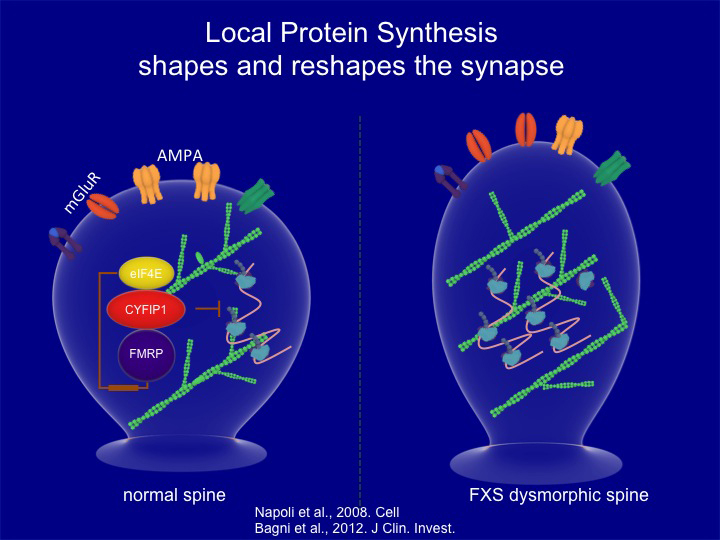Claudia Bagni: On the road to understanding intellectual disabilities

Since joining the laboratory of Molecular Neurobiology at the University of Leuven (KU Leuven) five years ago, former EMBL postdoc and Professor at the University of Rome Tor Vergata, Claudia Bagni, has been appointed Director of the Neurogenetics Program at KU Leuven’s Center for Human Genetics (2012), been elected an EMBO Member (2011), set up a successful laboratory attracting international PhDs and postdocs, and obtained several scientific achievements, including a paper in Cell (Napoli et al. Cell 2008).
What is the current focus of your work?
My group aims to understand the cellular and molecular aspects of intellectual disabilities, such as Fragile X Syndrome (FXS), the most common inherited cause of learning disability. We aim to identify synaptic pathways that are impaired in FXS, as well as autism, schizophrenia and, recently, Alzheimer’s disease. Examining molecular mechanisms at the synapses could bring major inroads into processes that govern learning and memory, as well as human behaviour and neurodegenerative diseases that arise from malfunctioning synapses.

Why did you decide to go to Belgium?
I joined the Center for Human Genetics because it is one of the largest in Europe, with the most diverse patient population with inherited intellectual disabilities. Its founder, Professor Herman Van den Berghe,was among the pioneer clinicians who described patients with FXS. I’m also interested in developing possible pharmacological approaches to modulate aspects of FXS and autism, and VIB and KU Leuven support this approach and research.
What do you enjoy about your work?
The Center for Human Genetics is part of KU Leuven, the University Hospital Leuven (UZ Leuven) and VIB; the integration and complementary vision of these different entities creates many opportunities and provides excellent technology platforms.
About Belgium
Belgium, an EMBL member state since 1990, is currently home to more than 40 known alumni. Half continue to work in academia, at the universities of Brussels, Leuven and Ghent among others. Just over one-third have made the move to industry.
EMBL and VIB scientists collaborate in several fields and have published 22 joint publications since 2011.
For further information about research and innovation in Belgium, visit www.research.be